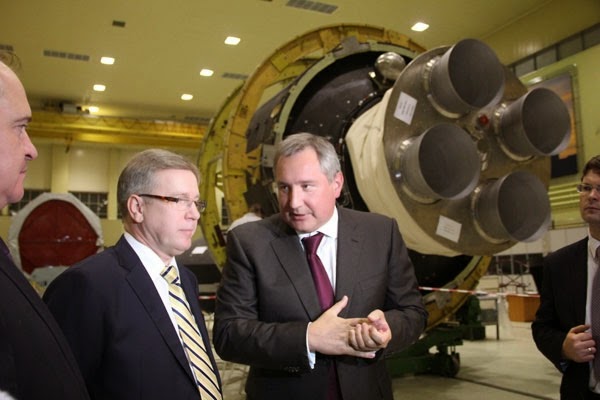By Richard Arnold
Rogozin’s statement is of more symbolic than practical importance, as there is no indication that, outside of Russia, the system will be affected at all. The idea that the United States could use its GPS system to gain some possible military advantage in a confrontation with Russia has also been ridiculed even on the Russian Internet (https://www.computerra.ru/99241/). Rather, the primary effect of such a move is most likely to be symbolic and a perfect metaphor for Russia’s choice to opt out of the international system in the wake of Moscow’s confrontation with the West over Ukraine.
Dmitry Rogozin had earlier provided another metaphor for Russia’s isolation on May 14, when he declared that Russia would be ceasing cooperation with the United States’ space agency, the National Aeronautics and Space Administration (NASA) after 2020 (https://ria.ru/space/20140514/1007700147.html). Russia would be redirecting its attention elsewhere, Rogozin said, and not to joint space exploration (see EDM, May 15). The announcement should be troubling for NASA, as Russian rockets launched from the Baikonur space station in Kazakhstan currently remain the only way of reaching the International Space Station (ISS) following the termination of the US shuttle program in 2011. If the United States wants to keep the orbiting laboratory functioning beyond its putative end of use date of 2024, it will have to work out another way of carrying supplies and astronauts to and from the ISS. Joint cooperation in space continued between the United States and the Soviet Union even during the Cold War, so this announcement implies an even frostier relationship than was true in the middle of the last century.
On April 2, in response to Russia’s annexation of Crimea, the North Atlantic Treaty Organization (NATO) already suspended cooperation with Russia in Afghanistan, including in counter-narcotics and helicopter maintenance programs (https://www.newsru.com/russia/27mar2014/fskn.html). A counter-narcotics program in the country is clearly in Moscow’s best interest due to Russia being the biggest market for Afghan heroin and hashish. At the same time, Russian investment in Afghanistan is picking up steam, possibly suggesting Putin’s desire to anchor his position in Central Asia (https://inosmi.ru/world/20140322/218866437.html). Afghanistan is a particularly symbolic case due to it being the graveyard of the Soviet Union after US-backed Mujahedeen turned the country into a quagmire similar to Vietnam for the United States. Restoring Russia’s position in Afghanistan would be a major symbolic victory for Vladimir Putin, who could truly claim to have exorcised the ghost of Soviet demise. Taken individually, none of these moves is likely to have an effect on the international order; but taken together, they provide evidence that a new climate of mutual suspicion, distrust and fear has settled over the world. Such international discord creates new opportunities for other rising powers in the world to become more assertive and is possibly at least a partial explanation for the timing of Chinese activism in the South China Sea and in Vietnam.





